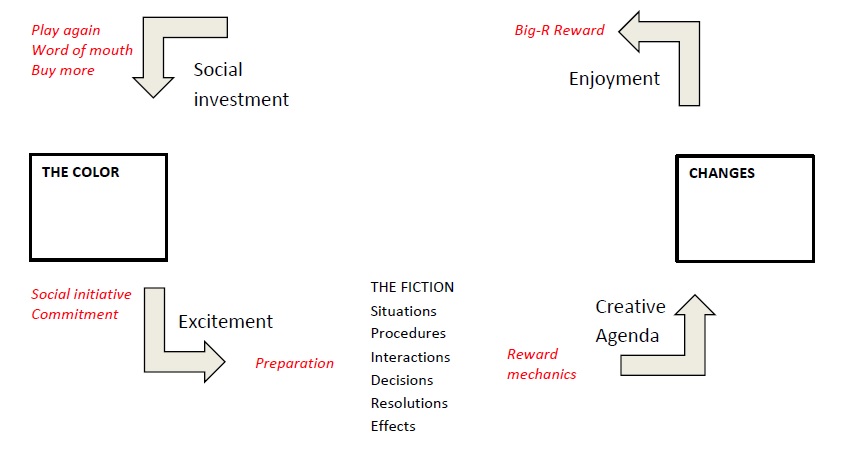Here’s one of my favorite things: consulting with someone I didn’t know about a project I didn’t know about. Jeff McNeil has been working on his game Levied Souls for some time, and it’s beaten into pretty much manuscript phase, just shy of actual layout. I’ve learned that this is not my favorite phase to consult. I’ve even declined or killed more than one consulting arrangement on that basis, because a designer is typically not inclined to get scorched at that point, i.e., nearly anything I have to want them to think about is way past what they want to “go back” and do. You’ll see me checking on that with Jeff in the early part of this conversation.
I should probably also explain that this is our first meeting, which in my consulting arrangement, is provisional. The potential client and I meet partly just to see whether we can communicate, whether the goals make sense to both of us, and whether some direction for the consultation seems evident. Only after agreeing to that do we move into payment. So in watching this, or most of the other first-session consulting videos, keep in mind that it’s not locked down and paid yet, and that I’ve looked at whatever materials I’ve been sent, but am more interested in how it’s stated by the creator than in what’s claimed on the pages.
Anyway, I guess you’ll also see that all such concerns turned out extremely positively, as Jeff knows his mind, knows his game, has a good idea of what I can provide, and is ready for doing just that. The four parts of the session break down as:
- Arriving at expectations and goals; getting a good look at the essential Color or inspiration – you’ll quickly see that this is dark psychological fantasy, aimed at wrenching moments and lasting consequences.
- Discussing how situations and characters change, especially about the moral moments and resulting effects, with a couple of mechanical concerns raised by historical games.
- Taking that concept to system diagrams, introducing them as a tool and addressing how they aid in design and in writing.
- Continuing with the concept of inspiration: whether and how system design honors it, and how it influences texts (or doesn’t).
This all set us up for me to review the text in detail and for Jeff to make diagrams, which as of this writing I’m doing and he’s done. His diagrams (to be shown with our next session) are way more about vices and souls and conflicts, not too much at all about treasure and death. For my part, I was struck by how pulp and edgy the setting is, more so than our conversation indicated. He’s going for a lot more Fritz Leiber, Clark Ashton Smith, and perhaps Karl Edward Wagner than it seemed to me at first, which is a real strength, and I’ve been thinking about how to bring that forward in any way.
Since the game is in almost-done status, I’m also committed to playtesting it without Jeff, so – anyone up for awful hallucinatory soul-destroying morals-questioning horror action fantasy? I may know a thing or two about that …



4 responses to “Existential sword and sorcery”
Session 2 added
The second session's added! I simply included it into the existing playlist. Here's the direct link to the start of the second session, inside the playlist.
I cannot avoid, given the title
I probably should watch the videos first, but that may take a few days, so … while I'm sure I'd play to avoid soul-destruction, that has to be possible in existential sword and sorcery, and having given thought to Howardian existential-stuff lately – mark me as interested.
The term applies in two ways.
The term applies in two ways. First as explicit topic, in that the fantasy & setting of the game are pretty much 1000 ways to be killed, become morally bankrupt, go insane, or just make bad choices, and that's aside from whether the world will go into End Times and maybe implode/explode. Second, and probably the big topic for the whole consulting assignment, is teasing apart trenchant crisis from planned outcome at multiple points of character creation and rules use.
Session 3 added
This is a big topic session: a ton of different ways to get at "how do we orient toward starting play?" and "how do we know the difference between instigating plot/conflict vs. overly programming its endings?" A very practical dive into the system, which may be a little tricky for the viewer due to the games specific use of terms like Books and Categories. I'm holding a playtest soon which, if the recording works out, will showcase these. Here's the direct link to session 3 in the complete playlist.